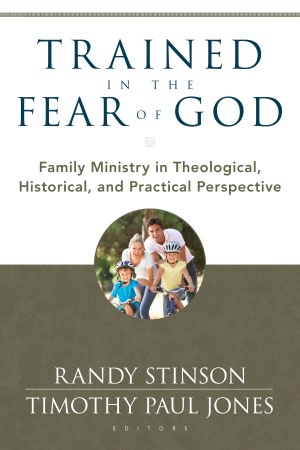According to John Newton, popery “has a very extensive sense”. Newton believe that anyone that desired to confine another person to “follow his sentiments, whether to doctrine or order, is so far a papist”. He then described a consistent thus:
Whoever encourages me to read the Scriptures, and to pray for the teaching of the Holy Spirit, and then will let me follow the life of the Lord gives me, without being angry with me because I cannot or will not see with his eyes, nor wear his shoes, is a consistent Protestant.
One of the reasons that I love John Newton so much is because of his gracious spirit and desire to see unity within the body. He constantly strove to encourage believers of all stripes to “love one another, bear with one another, to avoid dispute; and if they must strive, to let their strife and emulation be who shall most express the life of the Son of God in their temper and conduct”.
If we really believe the gospel and the unity that Christ has bought for us then we have no other option than to pursue the type of unity and mindset that Newton models and exhorts us towards. Consistent Protestantism means that we believe in the priesthood of all believers and we believe that the Spirit guides others just as much as us. It means that we humbly acknowledge that the Christ is Lord over their lives and not us or any other “vicar of Christ”.
 Bernard was born in 1090 and died in 1153. He was a French abbot who sought admission into the Cistercian order to be a monk shortly after the death of his mother. He goes down in history as the “
Bernard was born in 1090 and died in 1153. He was a French abbot who sought admission into the Cistercian order to be a monk shortly after the death of his mother. He goes down in history as the “ I just finished reading Mark Buchanan’s new book Your Church is Too Safe. My view of the book is different from when it first came in the mail from Zondervan for me to review. When I first received the book I liked the cover, thought the concept was catchy but honestly figured that this would be a book that I would skim, gather a few nuggets and move on with life and ministry. If I’m being honest, this is what most books written to challenge and reinvigorate the church end up doing in my life. I learn a principle or two, I appreciate them, I assimilate some of the thoughts into my life and ministry, and then I move on. That is what I expected to get in Buchanan’s new book.
I just finished reading Mark Buchanan’s new book Your Church is Too Safe. My view of the book is different from when it first came in the mail from Zondervan for me to review. When I first received the book I liked the cover, thought the concept was catchy but honestly figured that this would be a book that I would skim, gather a few nuggets and move on with life and ministry. If I’m being honest, this is what most books written to challenge and reinvigorate the church end up doing in my life. I learn a principle or two, I appreciate them, I assimilate some of the thoughts into my life and ministry, and then I move on. That is what I expected to get in Buchanan’s new book. 


 New York Yankees:
New York Yankees: Jeremiah Burroughs was born sometime around 1600. He went to college at Emmanuel College in Cambridge in 1617 finally graduating with a Master of Arts in 1624. His tutor was another famous Puritan--
Jeremiah Burroughs was born sometime around 1600. He went to college at Emmanuel College in Cambridge in 1617 finally graduating with a Master of Arts in 1624. His tutor was another famous Puritan-- Thanks to your help Borrowed Light made it into the Sweet 16 in the SBCVoices Blue Collar Blog Madness. What is at stake is a coveted spot on the Voices Watchlist. Trust me you want Borrowed Light to be on that Watchlist and not those jokers that I’m going up against.
Thanks to your help Borrowed Light made it into the Sweet 16 in the SBCVoices Blue Collar Blog Madness. What is at stake is a coveted spot on the Voices Watchlist. Trust me you want Borrowed Light to be on that Watchlist and not those jokers that I’m going up against. 
 But there is a work that is the point of pastoral ministry that I cannot “work”; namely, an “amen” on Monday. The goal of a pastor and his preaching is that the sacred words of Sunday will generate an “amen” on Monday. It is to the preacher’s honor that he gets an “amen” on Sunday. It is to Christ’s honor that he gets an “amen” on Monday!
But there is a work that is the point of pastoral ministry that I cannot “work”; namely, an “amen” on Monday. The goal of a pastor and his preaching is that the sacred words of Sunday will generate an “amen” on Monday. It is to the preacher’s honor that he gets an “amen” on Sunday. It is to Christ’s honor that he gets an “amen” on Monday! Last year you helped Borrowed Light make the Sweet 16. And that was against powerhouse SBC blogs. This year those powerhouse blogs are gone and the folks at SBC Voices are seeing which of the “little guys” should be moved up to the hallowed status of (queue James Earl Jones) FEATURED BLOG!!!!
Last year you helped Borrowed Light make the Sweet 16. And that was against powerhouse SBC blogs. This year those powerhouse blogs are gone and the folks at SBC Voices are seeing which of the “little guys” should be moved up to the hallowed status of (queue James Earl Jones) FEATURED BLOG!!!!  When most people decide to begin a study of The Acts of the Apostles they typically do so to study issues of church government and practice, the work of the Holy Spirit (and all the side issues attached to that—speaking in tongues, baptism of the Spirit, etc.), or the missions of the early church. Acts is typically thought of as the place to go to get answers to your questions about the Spirit or how to develop an ecclesiology for your church.
When most people decide to begin a study of The Acts of the Apostles they typically do so to study issues of church government and practice, the work of the Holy Spirit (and all the side issues attached to that—speaking in tongues, baptism of the Spirit, etc.), or the missions of the early church. Acts is typically thought of as the place to go to get answers to your questions about the Spirit or how to develop an ecclesiology for your church.  At the age of sixteen she married Simon Bradstreet. Her husband (as well as her father) served as a governor of the Massachusetts Bay Colony. Anne and her husband, along with Anne’s family, sailed for America in 1630 as a Puritan emigrants. The Bradstreet and Dudley family were instrumental in founding Harvard.
At the age of sixteen she married Simon Bradstreet. Her husband (as well as her father) served as a governor of the Massachusetts Bay Colony. Anne and her husband, along with Anne’s family, sailed for America in 1630 as a Puritan emigrants. The Bradstreet and Dudley family were instrumental in founding Harvard. Commentary sets and compilation books are sometimes like a banana. What I mean is that there are parts of them (certain volumes) that are amazing and exemplify what they were created to do. But then there seem to be certain chapters or volumes that leave you scratching your head as to how the editor of the series let this one slide. It’s a huge contrast between “tasty snack” and “vile, diseased flesh of the damned”.
Commentary sets and compilation books are sometimes like a banana. What I mean is that there are parts of them (certain volumes) that are amazing and exemplify what they were created to do. But then there seem to be certain chapters or volumes that leave you scratching your head as to how the editor of the series let this one slide. It’s a huge contrast between “tasty snack” and “vile, diseased flesh of the damned”.  The Gospel as Center is actually a compilation of 14 booklets produced by
The Gospel as Center is actually a compilation of 14 booklets produced by  Apparently celebrity pastors and rock star Christianity are not new to our culture. Many even in John Newton’s day struggled with the assumption that more visible and mightily used men like George Whitefield must be more pleasing to God.
Apparently celebrity pastors and rock star Christianity are not new to our culture. Many even in John Newton’s day struggled with the assumption that more visible and mightily used men like George Whitefield must be more pleasing to God.  You want to win a $10 Gift Certificate to Amazon? Simple. Win this bracket challenge:
You want to win a $10 Gift Certificate to Amazon? Simple. Win this bracket challenge: There is a classic story (
There is a classic story ( Charles Simeon was born in 1759 in Reading, Berkshire. He attended Eton College and Cambridge. While at Cambridge he came to know the Lord. John Piper helps us to see the miracle of this when he says, “He had no mother to nurture him. His father was an unbeliever. His boarding school was a godless and corrupt place. And his university was destitute, as far as he knew, of other evangelical believers.”
Charles Simeon was born in 1759 in Reading, Berkshire. He attended Eton College and Cambridge. While at Cambridge he came to know the Lord. John Piper helps us to see the miracle of this when he says, “He had no mother to nurture him. His father was an unbeliever. His boarding school was a godless and corrupt place. And his university was destitute, as far as he knew, of other evangelical believers.”



 Part of God’s calling on my life is to teach students how to read the Bible. Occasionally, I will have some students that desire to learn how to do Bible studies, write sermons, and do other types of ministry. Inevitably, in both these endeavors I find myself consistently telling them to make sure that Jesus is the hero of every text. That is a question I ask of my own preaching and one that I hope to instill in the lives of students that God has entrusted me with.
Part of God’s calling on my life is to teach students how to read the Bible. Occasionally, I will have some students that desire to learn how to do Bible studies, write sermons, and do other types of ministry. Inevitably, in both these endeavors I find myself consistently telling them to make sure that Jesus is the hero of every text. That is a question I ask of my own preaching and one that I hope to instill in the lives of students that God has entrusted me with.